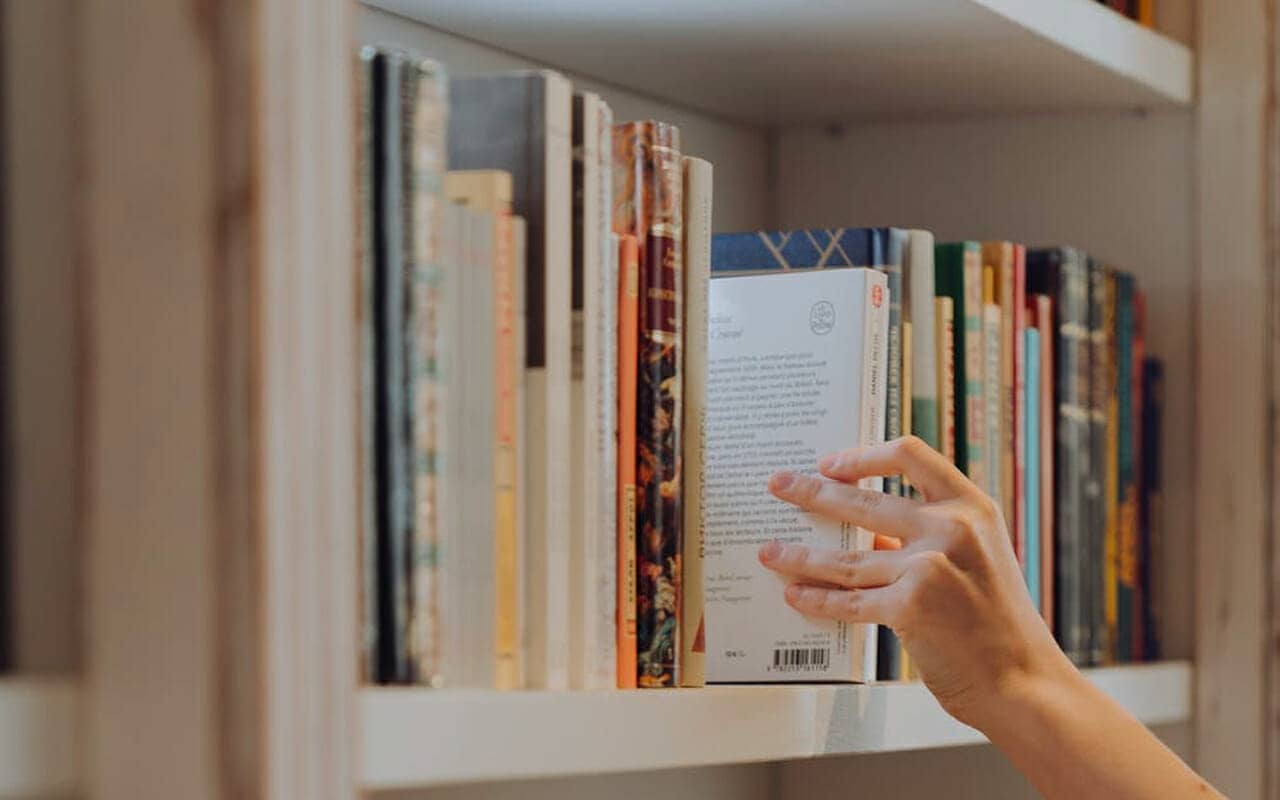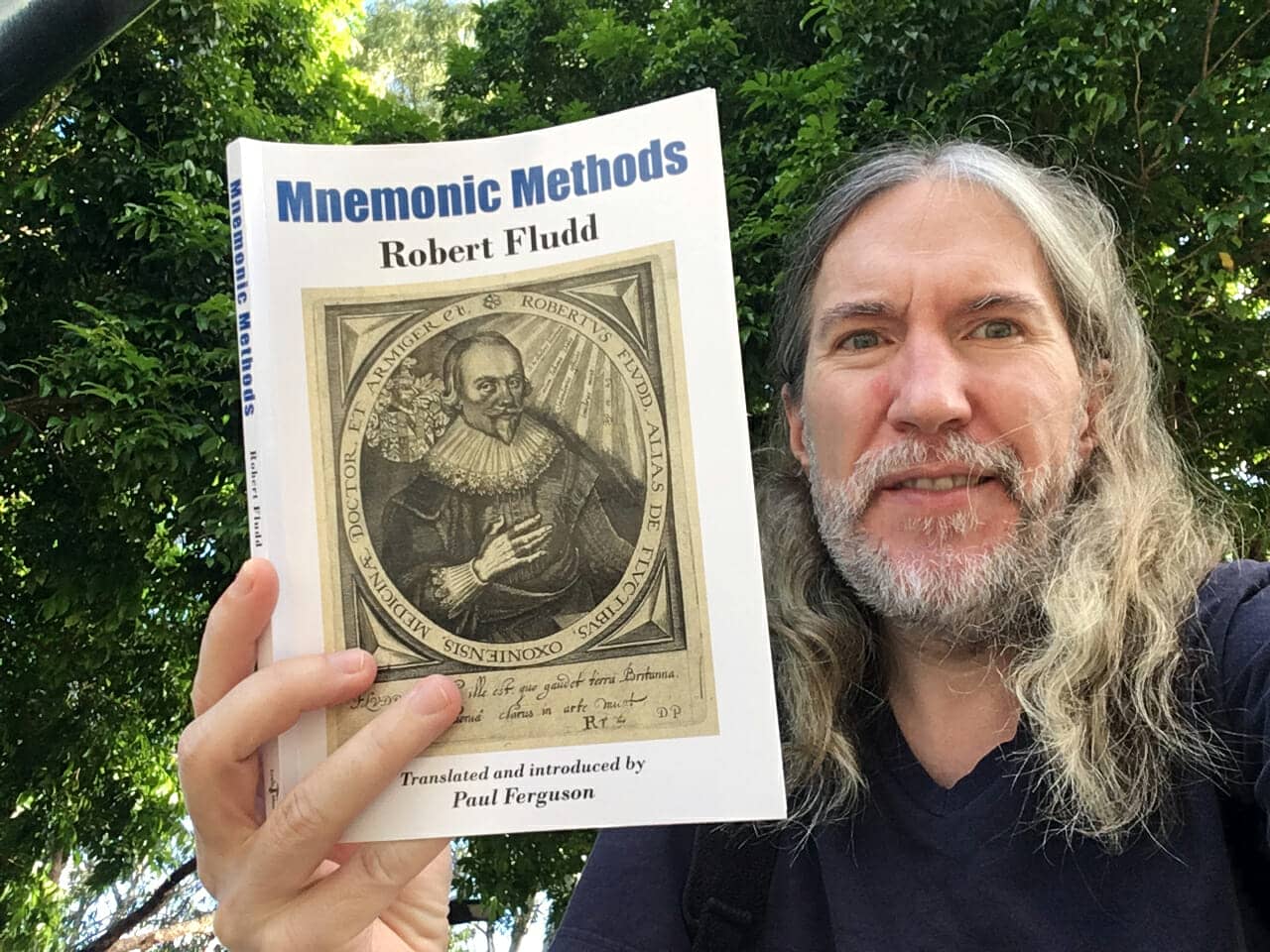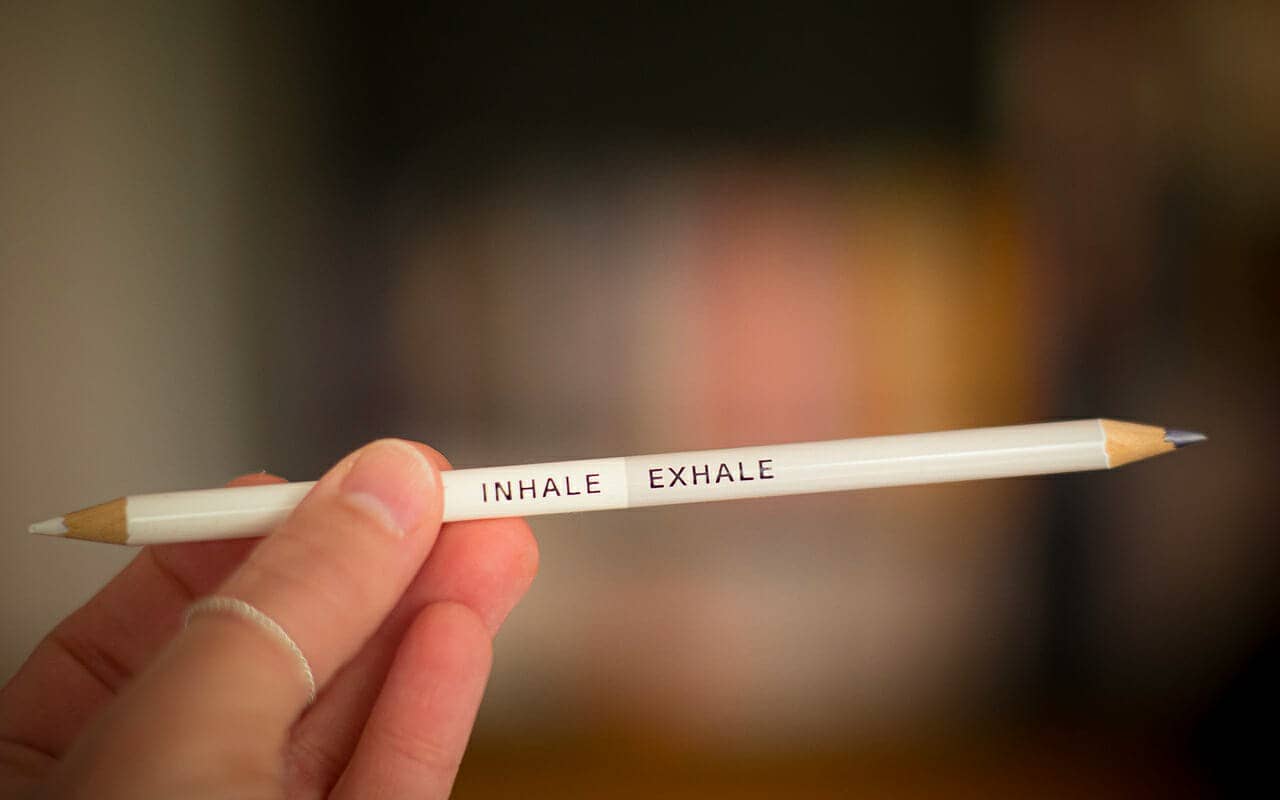
Every day.
Not only do I believe that reading before you go to sleep good. I believe it has become essential in today’s world.
Never before have so many people been messing up their lives with bad bedtime habits.
If you want to improve, night time reading is well worth exploring.
To help you with that, I’ll share some of the science of reading and my own experiences reading in bed.
Why should you care what I have to say?
In addition to holding a PhD and other degrees, I’m largely acknowledged as one of the world’s foremost memory experts.
I’m also the guy they invite to comment on the techniques memory competitors use at events like the Pan American Open Memory Competition.
So, if you’re ready for the lowdown on reading during the twilight hours, let’s dive in!
The Truth About Reading Before Bed
As with just about everything, the night time reading practices I’m about to show won’t be for everyone. Nothing is.
But these days, just about everyone faces dopamine issues and digital amnesia. We’re all way too exposed to the great rote learning machine of the Internet.
I call it that because we’re exposed to countless ads every time we watch a video. Ads track us all over the news pages we read. It’s a mind crushing experience that risks reducing your critical thinking skills to almost nothing.
But when it comes the benefits of reading, it’s impossible to stress this point enough:
Reading before bed improves sleep quality.
According to these researchers, as long as you follow these criteria, you will almost certain rest better:
- Do not eat food 1 hour before bed
- Do not drink anything caffeinated 1 hour before bed
- Establish a regular sleeping and waking routine
- Read for 30 minutes before your planned sleeping time
This finding is important not only because I’ve enjoyed the benefits of a protocol similar to what the study described for years. It’s also because getting a good sleep improves your memory.
Avoid These Habits If You Decide to Read Before Bed…
Personally, I make sure to stop drinking any fluids at all 2 hours before bed.
And I also put my devices away two hours before bed. These two choices combined help ensure that I detox from devices for a sufficient amount of time and won’t be woken up too early by the call of nature.
Another habit I avoid is having conversations about anything stressful in the evenings.
For some reason, my wife often likes to raise complex topics while we’re laying in bed. But when she starts discussing something that will surely get my mind rolling, I always ask her to save it for the morning.
Otherwise, I wind up in a cycle of self punishment, either because I say something I regret. Or I wind up not being able to fall asleep and spend the next day with racing thoughts because I’m exhausted.
In sum, it’s important to prep both the body and the mind for rest.
And reading in bed is a great way to both get some silence and start fasting earlier so you give your digestion system a much longer pause.
5 Tips to Make Reading in Bed More Productive
At the risk of contradicting myself, I avoid touchy topics in bed. But not disruptive books.
Far from it. I read a range of materials in bed, including many books that include challenging ideas.
However, this doesn’t bother me because I have some special strategies for capturing ideas that arise without having to think about them too much.
Let’s have a look at some of my favorite strategies for reading in bed, remembering more and using reading to get a great rest.
One: Rotate Between Books
I rarely read any single book for longer than 15 minutes at a time. Using a principle called interleaving, I usually read 15-20 pages from 3-4 different books each night.
Interleaving not only helps with memory and comprehension. When reading at night, it also helps avoid getting wound up with any individual idea in a way that might keep you up.
Two: Read Physical Books Only
Although the study I cited allowed Ereaders and other devices in bed, I avoid this myself.
Scientists have clearly shown that too much screen time leads to negative mental states, especially amongst younger people. I’m no longer young, but if I’m on the computer too much, it leads me to feel negatively too.
Blue light has also been shown to significantly disrupt sleep.
In the past, I would sometimes listen to audiobooks as I fell alseep. But I found the narrator would make me up later. And when YouTube started shoving ads into everything ever five minutes (or more often), the volume changes would yank me awake.
By reading physical books only, all of these issues are completely sidestepped.
If you’re worried about falling asleep in bed while reading, the only issue I’ve ever faced is that one or two of my books have fallen on the floor.
Frankly, the slight banging up only gives them character. I don’t mind it at all.
Three: Keep A Pencil Tucked Behind Your Ear
I like to take notes when I read, including in novels.
Sometimes I use a Memory Palace and a PAO System combined to memorize information as I read my way to sleep.
But because I find using memory techniques exciting, I tend to take notes instead. Then I memorize key points later.
There are two unusual ways that I take notes. One involves my flashcard approach. The other involves creating what I call an Inverse Index.
If you’d like more information about these techniques, feel free to check out my live cohort program, Read with Momentum. If registration is currently closed, you can sign up for advanced notification the next time I run it.
By the way, the reason I use a pencil for these techniques is simple:
I’ve learned the hard way that pens ink up the blanket. But the purposefully dull pencils I use for taking notes in bed have never caused any such problems.
Four: Get Comfortable
There’s no point trying to stay awake if you’re reading before sleeping.
I get as comfortable as I am and usually wear a sleeping cap quite low over my eyes. It’s almost like I’m looking out at the pages from a cave of blankets.
It’s also nice when my wife cuddles close to me. I love reading with her head on my shoulder.
Five: Read Strategically
This suggestion is totally optional, but I highly recommend it.
See, I rarely read books randomly. Sure, sometimes I’ll come across a recommendation and gobble down a book that’s “off the plan.” Being able to read fast is useful for that.
But to maximize productivity, even while resting, I read within carefully defined learning projects.
For example, I write detective novels that center on characters who use mnemonic strategies.
So I read books that help me think through the themes of these books.
Or I will strategically re-read books. That, I will read books that are related to topics I’m already familiar with from my daytime reading projects.
That way, I’m still learning, but it’s lighter learning. It’s more like patching up a brick wall with new mortar than building one from scratch.
The Best Kind Of Books To Read Before Bed
Ultimately, the exact kinds of books you’ll want to read is a personal decision.
However, here are some suggestions based on my adventures in reading in bed for decades.
Fiction
The topic of reading before reminds me of one of the first bigger novels I read as a kid: Charlie and the Chocolate Factory. I was so into this book that I “borrowed” a flashlight from my dad’s basement workshop so I could finish it in one go.
I sometimes still read books written for kids at night.
And in general, I choose classics for my nighttime reading, except when I’m reading crime fiction to help develop my Sherlock-sensibilities for the Memory Detective series I’m writing.
Magazines
I only subscribe to two magazines, but they make for great light reading in the evening.
However, I have some biases in the topic of philosophy, something I find deeply important. So if I feel myself reacting to the philosophy magazine I receive, I quickly change it for something else.
Philosophy
As I mentioned, I tend to read books that fill in the gaps at night, rather than taking on new learning projects.
I’ve been studying philosophy for years, so rather than read another big philosophy book, I do this instead:
I add another book on ontology or epistemology. That way, I’m reviewing key ideas and learning more about exactly how philosophy is defined. It helps me save asking deep philosophical questions during the day when I have more time to reflect on them.
Meditation Books
By far, my favorite books to read at night involve meditation.
In fact, I’ve memorized so much Sanskrit, I sometimes just “read” the ancient guides to mindfulness directly from the walls of my Memory Palaces.
In the rare event I can’t fall asleep, I also do this instead of counting sheep.
Is Reading Before Bed Good? Yes, And…
As you’ve seen, I believe personally and the research shows that reading before you sleep is very good for you.
But one final highlight of a key theme I’ve already mentioned
Although I do read for my many projects, I stay away from material that gets me excited as much as possible.
For example, I’m a huge fan of mnemonics. But if there’s one kind of book I never read in bed, it’s books about Memory Palace methods.
Almost every time I do that, I wind up trying some new technique that gets me too excited to sleep.
So my suggestion is that you learn to Know Thyself.
And one way to do that really well is to spend some of your waking hours learning the Memory Palace technique.
Sign up for my free course now to learn all about it:
My only request is that you only look at the three ebooks I’ve included with it during daylight hours.
That way, you’ll be able to memorize interesting things yourself that give you an alternative to counting sheep whenever you can’t sleep.
But chances are that if you follow the tips I’ve shared today, you’ll slip easily into sleep each and every night.
And wake up deeply refreshed with a solid plan for what you’re going to read the next day and the next.
So what do you say? Are you ready to start reading at night with renewed confidence?
Enjoy!
Related Posts
- Why Speed Reading Is The Ultimate Enemy Of A Well-Read Mind
Is "speed-reading" really such an attractive idea? The short answer is ...
- 5 Proven Visualization Reading Strategies For Comprehension And Memory
What is a visualization reading strategy and how does it affect memory and comprehension? This…
- 8 Epic Benefits of Reading: Why You Should Read Habitually
The benefits of reading everyday are clear. Learn the top 8 scientific benefits of reading…












